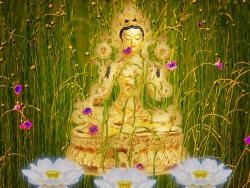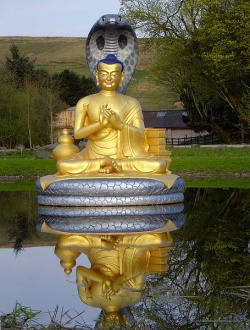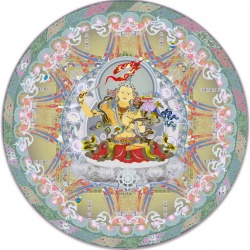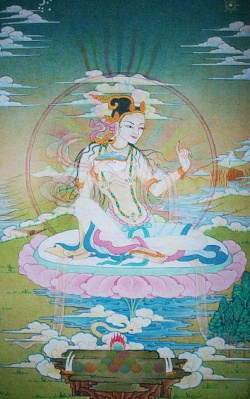Pitta
Pitta: Balanced Temper • Healthy Hair • Decreased Acid
Pitta governs all heat, metabolism and transformation in the mind and body. It controls how we digest foods, how we metabolize our sensory perceptions, and how we discriminate between right and wrong. Pitta governs the important digestive "agnis" or fires of the body. Do you need to balance Pitta?
Pitta dosha governs metabolism and transformation in the body.
Answer these questions to see if you need to balance Pitta.
Do you tend to be demanding or critical?
Are you often frustrated, angry or intense?
Is your skin ruddy and prone to rashes and eruptions?
Are you often irritable or impatient?
Is your hair prematurely gray or thinning?
Do you wake up in the early hours and find it difficult to fall asleep again?
Do you feel discomfort in hot weather?
Are you a perfectionist?
Do you experience hot flashes?
Do you have excess stomach acid?
Do you experience loose bowel movements?
If you answered yes to most of these questions, you need to balance Pitta.
Tips for Balancing Pitta
All Pitta products: drink Organic Pitta Tea and season meals with Organic Pitta Churna; practice cooling aromatherapy with Cooling Pitta Aroma Oil.
Keep cool. Avoid hot temperatures and food.
Favor cool, heavy, dry foods and sweet, bitter and astringent tastes.
Reduce pungent, sour, salty tastes and warm, oily and light foods.
Moderation; don't overwork.
Allow for leisure time.
Regular mealtimes, especially lunch at noon.
Abhyanga (ayurvedic oil massage) with a cooling oil such as coconut.
Pitta-Pacifying Diet
Dairy. Milk, butter and ghee are good for pacifying Pitta. Reduce yogurt, cheese, sour cream and cultured buttermilk (their sour tastes aggravate Pitta).
Sweeteners. All sweeteners are good except honey and molasses.
Oils. Olive, sunflower and coconut oils are best. Reduce sesame, almond and corn oil, all of which increase Pitta.
Fruits. Favor sweet fruits, such as grapes, cherries, melons, avocados, coconuts, pomegranates, mangos, and sweet, fully-ripened oranges, pineapples and plums. Reduce sour fruits such as grapefruits, olives, papayas, and unripe pineapples and plums.
Vegetables. Favor asparagus, cucumbers, potatoes, sweet potatoes, green leafy vegetables, pumpkins, broccoli, cauliflower, celery, okra, lettuce, green beans and zucchini. Reduce hot peppers, tomatoes, carrots, beets, onions, garlic, radishes and spinach.
Spices. Cinnamon, coriander, cardamom and fennel are all right. But the following spices strongly increase Pitta and should be taken only in small amounts: ginger, cumin, black pepper, fenugreek, clove, celery seed, salt and mustard seed.
Chili peppers and cayenne should be avoided.
For a more detailed chart of specific food dos and don'ts for pacifying Pitta.
Pitta Governs
Alochaka Pitta: Functioning of the eyes.
Bhrajaka Pitta: Healthy glow of the skin.
Sadhaka Pitta: Desire, drive, decisiveness, spirituality.
Pachaka Pitta: Digestion, assimilation, metabolism for healthy nutrients and tissues.
Ranjaka Pitta: Healthy, toxin-free blood.
Pitta out of Balance
Alochaka Pitta: Bloodshot eyes, poor vision.
Bhrajaka Pitta: Skin rashes, acne.
Sadhaka Pitta: Demanding, perfectionist, workaholic.
Pachaka Pitta: Acid stomach.
Ranjaka Pitta: Early graying, anger, toxins in blood.
http://www.mapi.com/ayurvedic-knowledge/doshas/pitta.html#gsc.tab=0
All About Pitta
Pitta-type people are generally of medium size and well proportioned. They have a medium amount of physical energy and stamina. They also tend to be intelligent and have a sharp wit and a good ability to concentrate. Fire is a characteristic of Pitta, whether it shows up as fiery red hair or a short temper. Since Pittas' body temperature is generally warm, Pitta types can go out of balance with overexposure to the sun. Their eyes are sensitive to light. They are ambitious by nature but also can be demanding and abrasive.
Pitta types are known for their strong digestion but should be careful not to abuse it. Their heat makes them particularly thirsty, and they should take caution not to douse their agni, or digestive fire, with too much liquid during meals. Pitta dosha leads us to crave moderation and purity. We rely on Pitta to regulate our intake of food, water, and air. Any toxins, such as alcohol or tobacco, show up as a Pitta imbalance. Toxic emotions such as jealousy, intolerance, and hatred also should be avoided to keep Pitta in balance for optimum health.
Pittas work hard all day and sometimes have trouble turning off their active minds to go to sleep. They need to take some time between work and sleep to really wind down and relax. A cool shower or bath also helps to soothe Pitta toward a restful night's sleep.
Ayurveda recommends that everyone keep a regular bedtime and morning routine. Bedtime should be at the same time each night, preferably at 10:00 P.M. The hours before bed should be spent with quiet activity, Yoga, and meditation. You should awaken at dawn, between 6:00 and 8:00 A.M., and proceed with your daily rituals.
Pitta Tea A delicious combination of fragrant Rose Petals and refreshing spices, Pitta Tea is the perfect answer when you're feeling intense or frustrated. Drunk warm or cool, it helps cool down your mind, body and emotions.
Cooling Massage Oil for Pitta The Pitta blend combines Grapefruit, Sweet Orange and Lavender in Coconut Oil for a cooling and refreshing massage.
Ayurveda teaches that good digestion leads to good health and poor digestion can bring disease. Each mind/body type digests differently. It is important to understand your mind/body type and how it digests food when planning your meals.
Pitta digestion is usually strong and intense. Pittas should favor cool or warm, rather than hot, foods, with moderately heavy textures. Foods should include bitter, sweet, and astringent tastes.
Print the Pitta Diet Info Sheet
Balance Pitta when you are intense, critical, frustrated or angry, and prone to overwork, a ravenous appetite, and sensitive skin.
If you're feeling stressed because you are angry, Pitta Tea will help "cool you off."
Pitta & Colds
Pitta colds include a high fever and sore throat. A cooling Pitta routine should be followed. Try Cooling Pitta Aroma Oil a cool blend of Sandalwood, Ylang Ylang, Lavender and other








